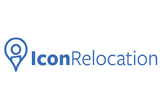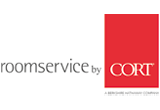Optimising global mobility for India’s tech talent
India’s tech talent plays a key role in the worldwide digital revolution. Holly Creed, global mobility manager at DXC, spoke to Relocate to tell us how assignments out of India help keep the world connected.

Tech talent on the move
DXC Technology overall has a large mobile workforce of approximately 2,500 people. A solid 80% of this number are people on outbound assignments from India.“India is very important to DXC,” says Holly. “We have outsourced a lot of our work here, but also a lot of our talent are here as well.“For many years we have grown considerably in India. Now we are finding our most common assignments are India outbound.”India on the rise
This vantage point of a large mobile population and a long-term perspective on mobility outbound from India means Holly was a natural choice to speak at Relocate’s Festival of Global People, where she will share her experiences on where next, the challenges and opportunities. “People really need to start paying attention to India,” explains Holly. “There are lots of different industries, not just tech, that are now requiring Indian nationals to go on assignments.“This is not just because of their skillsets, but for leadership and management experience. It’s about future-proofing our organisations.”Managing outbound assignments from India
There are many factors to consider for outbound assignments from India. “It’s very different in terms of compliance and what employees look for in an assignment,” says Holly. This is especially so when what assignees seek from their relocation is changing.DXC is in the process of redesigning its policies to better meet the needs of its globally mobile talent and the business. The changes aim to make assignments more attractive to candidates and ease their integration into host locations. Crucially, the redesigned packages will also mean DXC Technology is better placed to compete in the marketplace for skills and talent where today it is being challenged by India’s vibrant start-up scene.“At the moment, we are changing the levels of support,” says Holly. “What we used to offer was very lean.“Getting people to go on assignment can be difficult. We are getting pushback from some candidates, who want more of a typical expat package.”DXC’s current approach is cash focused with some benefits; an approach influenced by immigration salary thresholds to maintain compliance. The company’s enhanced approach will add further benefits, including compulsory intercultural training.“It’s very different working on a project with someone and communicating over the phone or via email, to then be working next to them every day,” says Holly. “There is often culture shock both sides, so having this awareness increases people’s chances of settling in and ensuring a successful assignment.”Balancing cost optimisation with risk
For a company where cost optimisation is important, DXC’s decision to upgrade its policies is also one based on realism.Identifying that in some high-cost countries assignments can cost up to 30% more for an expatriate from India than a local hire, there is a danger that without these additional benefits costs will spiral further upwards.“We are very keen to utilise cost optimisation within the Global Mobility Team at DXC,” says Holly. “This is a core value of our policies, which are underpinned by the notion that rather than see the assignee struggle and costs uncontrollably increase, we invest a small amount to help the assignee settle in at the beginning of the assignment to enable them to undertake their assignment activities quicker.”Preparing for the future
“When we make decisions around an assignment, we look at predicted costs for that person,” continues Holly. "An assignee cost can double or triple, which business managers don’t understand or sometimes believe, as it may make a project unprofitable and be something they don't want to hear.” Adding more, and more structured, support around assignments is therefore helping to get assignees on the move while also safeguarding budgets, and minimising financial shocks to the business and DXC’s clients.This development is also further evidence of how the world’s economic axis is shifting to the southern hemisphere and another example of how global mobility professionals are staying alert to what this means in practice and in policy.Festival Sponsors:
Festival Supporters:
Subscribe to Relocate Extra, our monthly newsletter, to get all the latest international assignments and global mobility news.Relocate’s new Global Mobility Toolkit provides free information, practical advice and support for HR, global mobility managers and global teams operating overseas.
 Access hundreds of global services and suppliers in our Online Directory
Access hundreds of global services and suppliers in our Online Directory
©2026 Re:locate magazine, published by Profile Locations, Spray Hill, Hastings Road, Lamberhurst, Kent TN3 8JB. All rights reserved. This publication (or any part thereof) may not be reproduced in any form without the prior written permission of Profile Locations. Profile Locations accepts no liability for the accuracy of the contents or any opinions expressed herein.









































